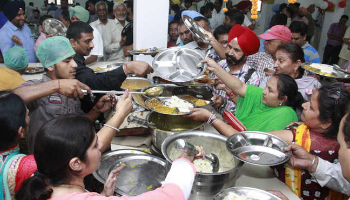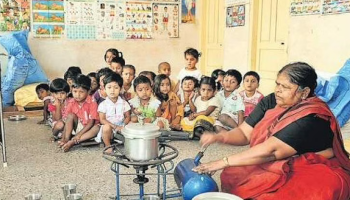Delhi: Increased jail term, fine in cases of denial of Minimum Wages
7 May 2018: The Minimum Wages (Delhi) Amendment Act, 2017, which was passed by the Delhi Assembly on August 10, 2017, came into effect on 4 May 2018 after the assent of the President Ram Nath Kovind. The amendment increases the fine under the Minimum Wages Act, 1948 for failure to pay minimum wages from ₹500 to ₹50,000 and the prison term from six months to three years. The punishment for other offences under the Act have been increased to a fine of ₹500 to ₹20,000 and/or imprisonment up to one-year.
The amendment will also lead to an increase in the minimum wages for unskilled workers from ₹9,724 to ₹13,584, semi-skilled workers from ₹10,764 to ₹14,958, skilled workers from ₹11,830 to ₹16,468 and graduate and above category workers to ₹17,916 from existing ₹12,870 respectively.
Centre to push Wage code, table Social Security code in Monsoon Session
17 May 2018: According to the Labour Minister Santosh Gangwar, the Wage Code Bill 2017 would be pushed for passage while the Labour Code on Social Security Bill 2018 would be tabled for consideration in the monsoon session of Parliament. According to the Minister, the Standing Committee on Labour has finalised its report on the Code on Wages.
Draft policy on Domestic Work ready
2 May 2018: The draft national policy on domestic work would possibly be announced this month according to news reports. The policy will allow states to set up boards to register workers, to bring them into the social security net and to notify minimum wages and working time for domestic workers.
The Unorganised Workers’ Social Security Act, 2008, (UWSSA) and the Sexual Harassment of Women at Workplace (Prevention, Prohibition and Redressal) Act, 2013 are the two laws which define domestic workers as “workers” but the first is merely implemented as a social welfare scheme and the second, protects working women at the workplace from sexual harassment.
India, though, is a signatory to 189th Convention on Domestic Work of the ILO, but is yet to ratify it.
Kerala: New Labour Policy focuses on Women and Migrant workers
18 May 2018: The new Labour policy of the LDF government in Kerala is both worker friendly and investment friendly claims the government.
According to the policy, the government would take steps to increase minimum wages to Rs 600 a day.
The policy focuses on migrant workers and their welfare. Volunteers familiar with languages of migrant workers would be appointed to communicate with workers from other states. Facilitation centers would be established in various parts of the state to inform migrant workers about job opportunities and welfare measures for them. The state government’s housing scheme for migrants, ‘Apna Ghar,’ would be launched in all districts.
The policy lists several steps to make workplaces women friendly and says crèche cess would be implemented in institutions employing women and employers have to ensure breast-feeding facilities.
According to the policy, labour banks would be formed to address shortage of skilled and unskilled workers. Lightning strikes, i.e., strike without notice, would be discouraged.
The policy promises to bring in legislation for fixing the service and salary of teachers in unaided schools. It also lists steps to eradicate child labour from the state.


